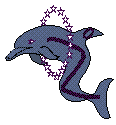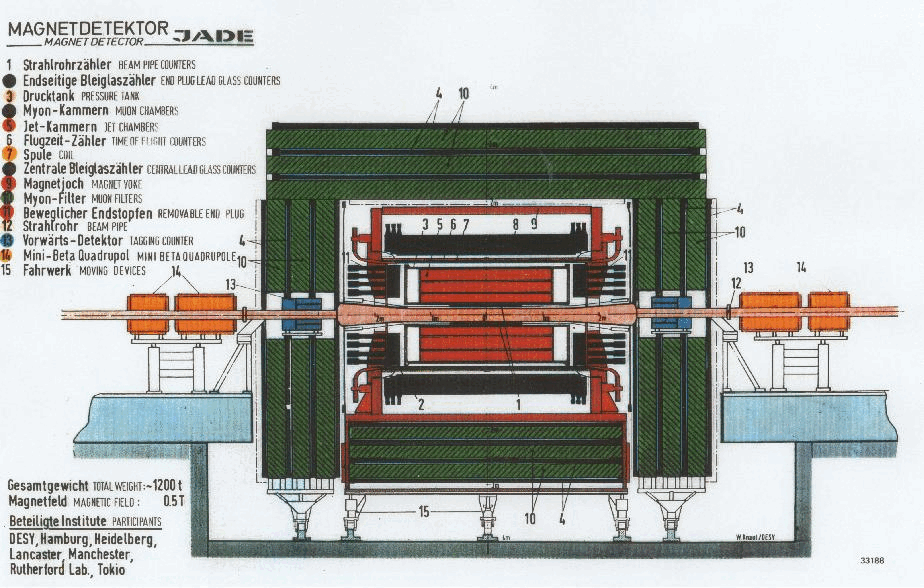Getting started with DELPHI data
Table of contents
This quick start guide is meant as a guide for the very first steps to get going with DELPHI software and data access.
Overview
The DELPHI stack consists of the following modules:
- DELPHI DST analysis framework, also referred to as
dstana. Please take a look at the Skelana framework for detailed information. - MonteCarlo production, includes simulation, reconstruction and short DST creation. Note that the DST format depends on the year. During LEP1, mainly short DST or long DST formats were used, while during LEP2 the extendent short DST format was the default. Note that the reconstruction code returns results in full DST format. Analyses should always use short or extended short DST format, because these generally contain fixes which were applied after the reconstruction itself.
- Event reconstruction from raw data, using the DELPHI event server.
- The graphical DELPHI Event display, also referred to as delgra.
Before you start ...
Please read and accept the DELPHI data access rules. They can as well be viewd at the the DELPHI web pages.
Accessing the software stack
There are two possible ways to access the software stack.
Docker
A container image is available which ships with all the modules installed. Please take a look at the DELPHI docker guide.
CVMFS
Binaries are also available from CVMFS, for a variety of different Linux flavors. Instructions can be found in our dedicated CVMFS guide.
Documentation
DELPHI manuals and notes are available from https://cds.cern.ch/
Here is a selection for getting started:
Source code
The sources are available from https://gitlab.cern.ch/delphi. Some modules still requires CERN authentication. The plan is to release the software in the near future.
Compilers
The DELPHI stack is mostly written in Fortran, with some bits written in C. Only gfortran and GNU gcc are supported. We use the gfortran version which comes with the
supported operating system. Recommended compiler and linker flags are set by the environment and should be used when building software linking with the DELPHI libraries.
Getting help
The collaboration main contact for data preservation is the mailing list DELPHI-data-preservation-board@cern.ch. Support can only be given on a best effort basis though. In addition, there is a discussion forum which you are invited to join, to exchange experiences and get in touch with former members of the collaboration.
Suggestions and feedback is welcome!
Examples
Some basic examples of how to run the software stack and perform various tasks can be found in the repository https://gitlab.cern.ch/delphi/examples. In addition, the repository https://gitlab.cern.ch/delphi/modern-delphi-examples has some proof-of-concept level examples about how to access the DELPHI data from e.g. C++.
In the following, we will
- Create some Monte Carlo events and run simulation, reconstruction and DST production on them
- First, we will show how to do so interactively
- Then, how to do this on the batch farm at CERN
- Show how to read the result from an analysis job
About simulation
Simulation is reconstruction code is supported for all the years 1992 and later. The code differs a bit for each of the years.
- The DELPHI simulation code comes with a few build-in generators. Typically, generators are run externally though.
- The script runsim is used to do the detector simulation, reconstruction and short DST creation steps. Use -gext to process an external file from some generator.
There is a dedicated guide available with more details about how to run DELPHI simulations.
Creating Monte Carlo samples interactively
Using internal generators
For creating a few events with a build-in generator run
$ runsim -VERSION v94c -LABO CERN -NRUN 1000 -EBEAM 45.625 -igen qqps -NEVMAX 10
It will as well pass the events through the detector simulation, and create a short DST file named simana.sdst which can be used for analysis, scanning etc.
Using external generators
In this case the generator is run externally and the output is written to a file in a specific format. This can then be passed through the detector simulation with
$ runsim -VERSION 94c -LABO CERN -NRUN 1000 -EBEAM 45.625 -gext generated.lund -NEVMAX 10
Again, this will create a short DST file name simana.sdst. Note that for the LEP 2 phase, a sol called extended short DST file will be created, which is typically called simana.xsdst instead.
Running an analysis job on the result
A dedicated guide is availabe with more details about how to run an analysis job for DELPHI.
The DELPHI analysis framework is called skelana. The way to write analysis code is by overriding one or more of the following Fortran functions:
USER00for the initialisation at the start of the runUSER01for the event selection. It should return 0 to skip the current event and 1 to read it.USER02is called for each selected event.USER99is called at the end of the run
An example can be found in the examples folder on the DELPHI container or on CERN gitlab. Take a look e.g. at the dump folder there.
Using nicknames
DELPHI data is organised in data sets which are identified via a nickname. When using opendata, each nickname comes with a corresponding DOI which you can quote.
To analyse data, use the nicknames which you can find at http://delphiwww.cern.ch/offline/data/castor/html. In this case, the PDLINPUT file created by the script above should contain the keyword PDL, followed by the nickname, e.g.
FAT = short94_c2
to read 94 C2 data. It will automatically resolve the data files and loop over all of them.
Raw data access
The DELPHI event server can be used to pick and reprocss individual events from raw data. A dedicated guide is available on the DELPHI event server.
Example:
$ des -m dstana -e 84078:10815
Event visualisation
After setting up the DELPHI environment you can start the DELPHI event display with
$ cd
$ rungra
For convenience, copy the files you want to scan to ~/graexe/data.
Please take a look at the DELGRA guide on how to proceed.
More examples
More examples can be found at https://gitlab.cern.ch/delphi/examples.








